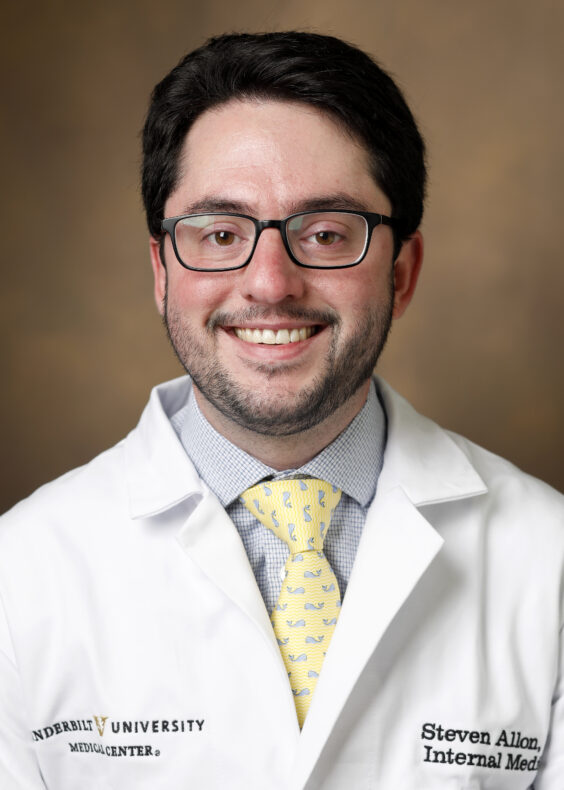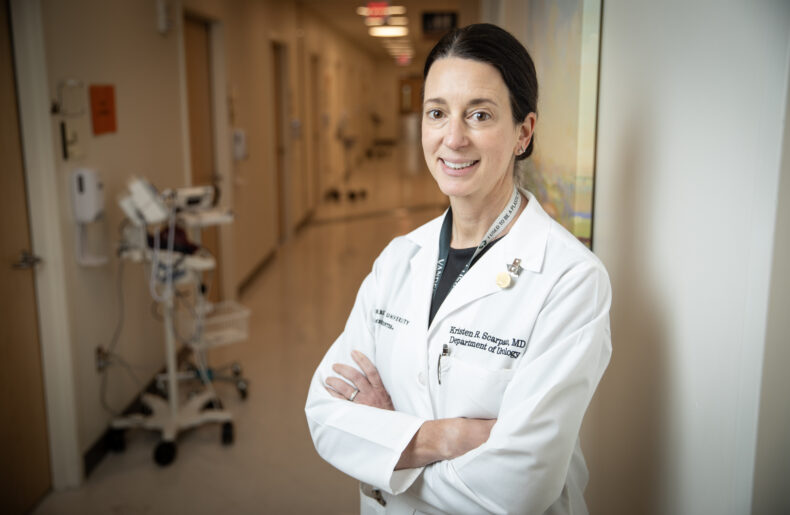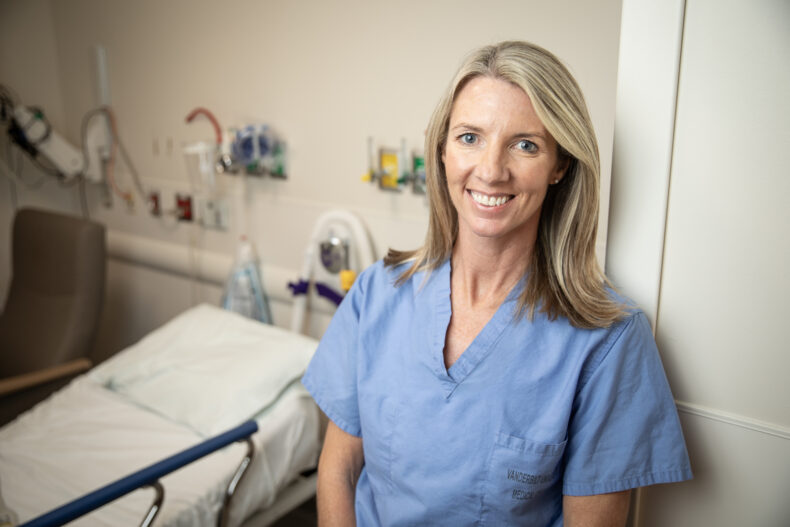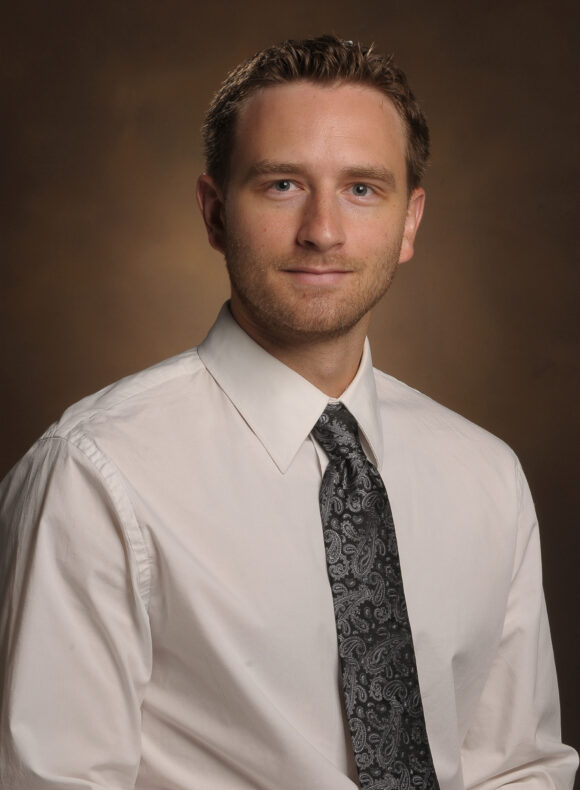My doctor told me I have cancer. Why did I feel so relieved? It’s weird, but I have my reasons. Hear me out.
A few days ago, I found out the results of a biopsy. If you have ever waited for test results to show up, you know the mixture of anticipation and dread that the little “you have a new message” icon on the My Health at Vanderbilt portal can bring. This is the way most people now find out medical information, including biopsy results, even before your doctor has had a chance to see them.
Some people prefer to wait for a phone conversation or meeting with their doctor, but I couldn’t wait another minute. I knew these results would have a great bearing on the next few months, and maybe the rest of my life.
I clicked on the report and read the words. Not to put too fine a point on it, I have cancer. Specifically, prostate cancer: adenocarcinoma, grade group 1, Gleason score 3+3=6.
I’m not a medical person; I’m a writer, but I’ve written about medical subjects and medical people for a long time, and as I read the report I thought that it was relatively good news, at least for someone like me who had gotten to the point of needing a biopsy.
I did something which I freely admit is a terrible idea, which I had been sternly warned against, and which I certainly don’t recommend that anyone else do.
And then I did something which I freely admit is a terrible idea, which I had been sternly warned against, and which I certainly don’t recommend that anyone else do: I googled my results.
Relief.
I ran downstairs to tell my wife, Sharon. It’s almost surreal even remembering this, but I told her everything with a smile on my face.
My relief was real because my fear had been real.
A little later, Sharon summed it up: “You’re the happiest person I ever heard of who just found out he has cancer.”
It hit me then. My reaction was unexpected, to me, and probably would be to anyone else. It was weird.
Hear me out, though. Here’s what I was thinking when I opened that report: I was considering that there was a range of outcomes, from “no cancer” at the good end to “life-threatening metastatic disease” at the other (very, very few people get this result, but still it was a fear, however far-fetched).
This result was much closer to the good end.
Time for a referral

This gland-oriented escapade began about 10 weeks earlier when routine blood work came back from a visit to my primary care physician, Steven Allon, MD, assistant professor of Medicine. I had an elevated prostate specific antigen (PSA), which can indicate cancer, but other things can also make it go up; it’s an imperfect test.
Allon is a low-key guy, which I appreciate, and he said the thing to do about a high PSA was to wait a few weeks and retest. I wasn’t having any symptoms; this was not a crisis; so, let’s just be sure the elevated PSA was real.
It was. Three weeks later, my PSA levels had risen.
Allon said it was time for a referral to Urology, where I met with Taylor Brewer, MSM, physician assistant in Urology, who, and I cannot emphasize enough how much I appreciate this, was low-key and professional. She looked over my lab work and quickly sketched out what needed to happen next: first, a multiparametric MRI (which shows more detailed images of the prostate and is now recommended by the American Urological Association for evaluation of an elevated PSA in some patients), and following the MRI, a prostate biopsy.
It’s quite an experience hearing Warren Zevon’s classic song “Werewolves of London” in an MRI tube.

So, first stop: MRI. I had never had one before, but I’m not claustrophobic and the Saturday morning I was there, the techs at Vanderbilt Imaging Services Midtown (who were friendly and, yes, low-key) played, at my request, songs by Warren Zevon into my earphones. It’s quite an experience hearing his classic song “Werewolves of London” in an MRI tube.
The report was, to me, scarier than a werewolf. The MRI indicated several lesions on my prostate, which were characterized as “at least mildly suspicious.” That “at least” is doing a lot of work in that sentence, and “prostate lesions” is not a phrase designed to cheer anybody up.
So: I had an elevated PSA and lesions. As you might imagine, this made me very apprehensive about what was going on.
I was about to find out.
A visiting dignitary at the surgical center
My biopsy was scheduled for a Monday morning at the Vanderbilt Surgery Center Belle Meade. The procedure just takes a few minutes, under IV anesthesia similar to that used for a colonoscopy. A couple of weeks before the biopsy, Lori King, FNP, a nurse from the Vanderbilt Preoperative Evaluation Center, phoned for some pre-op information, and she told me the urologist performing the biopsy would be Kristen Scarpato, MD, MPH, associate professor of Urology and the director of the Urology Residency Program.
I knew Scarpato a little bit by reputation because the News and Communications office where I work had featured her in some news stories and interviews with news media, but I did not know her personally.

King volunteered something that was very reassuring to hear: “Dr. Scarpato is great,” she told me. “She does most of the prostate biopsies at Vanderbilt. If my father needed a prostate biopsy, I would want her to be the one doing it.”
I met Scarpato the morning of my biopsy, and I liked her right away. She was — you probably saw this coming — low-key. In our brief pre-op discussion, she was calming and matter of fact and went over how the biopsy would be done (transperineally, guided by ultrasound). A little later, she went into more detail: “I make two needle sticks in your skin. Through those two needle sticks, I take 20 biopsies of your prostate.” She also met Sharon, who was waiting with me, and made sure to let Sharon know that she would phone her in the waiting room with a report on how I was doing as soon as I was out of surgery.
Scarpato was one of the last people I met before being taken to the OR, but she was far from the first.

Jami Webb, RN, was the nurse who looked after me before and after the procedure, and she was efficient and friendly. We had some time to talk while I waited, and it would have just been fun to hang out with her if I hadn’t been about to have a biopsy.

The anesthesiologist who would be working on my surgery, Eric Briggs, MD, introduced himself and went over the anesthesia procedure, and was a friendly and affable companion for a few minutes.
In fact, while I waited for my turn, it’s like I was a visiting dignitary or something, so many people came by. Each introduced themselves (I don’t remember most of their names; I’m terrible at names under the best circumstances, and when I’m wearing a hospital gown with an IV in my arm, I’m REALLY terrible at it).
There was the nurse who started my IV, a urology resident who would be assisting on my procedure, possibly a urology fellow (I’m a little hazy on this point), a certified nurse anesthetist, and at least two other nurses who wheeled the bed to the OR and helped me shift to the operating table.
Before this whole thing was over, my prostate was going to have a higher viewership than many late-night cable TV shows.
I thought about how many people were involved in my care. The front desk people who checked me in at each appointment and continuing through the clinicians in many VUMC departments, including internal medicine, pathology, radiology, anesthesiology and urology; the phlebotomists who drew my blood for tests; the techs at the imaging center; the nurses in the clinical offices and at the surgery center; and the people in Vanderbilt Medical Laboratories.
Before this whole thing was over, my prostate was going to have a higher viewership than many late-night cable TV shows. I think this is a very good thing. I’m happy to know that at VUMC, people work as a health care team, and that second, third, fourth and fifth opinions are built into the system.
The biopsy was very easy, from the point of view of a person who was technically there but, in the words preferred by leading anesthesiology texts, “out like a light.” I never had any pain, and I was deeply impressed with the efficiency and care at the surgical center.
My surgery was scheduled for 11:15 a.m., and the clock in the OR read 11:12 when I was rolled in. There was music playing: Belinda Carlisle’s “Heaven is a Place on Earth.” One of the nurses was softly singing along.
I awoke in recovery and asked for a cup of coffee (I had had to skip anything to eat or drink that morning). Sharon was there at my bedside, and soon we were in the car headed home.
The results came a week later.
Words of realistic reassurance
When Scarpato and I spoke the day after the pathology report had landed in the portal, she was thorough in explaining the results, willing to answer all my questions, and (you know how much I like this), low-key.
I liked her when I met her the day of my biopsy, and I liked her even more when we spoke, both because of what she said and the way she said it.
“You have low-risk prostate cancer,” she said. She explained that the recommended course is active surveillance, which, in my case, means another PSA test in three months and another biopsy in six months, just to be sure everything is stable and the first tests didn’t miss anything important. (Will I be nervous to check those results? Oh, yes.)
Here’s what the doctor did not say: “Hey, Wayne, everything looks great! Have a nice life!”
If I had received this same diagnosis 30 years ago, my options would have been much more limited.
This is going to require watching, and as Scarpato put it in a follow-up message, “The benefit (of active surveillance) is to avoid the harms of treatment for a cancer that is unlikely to spread or progress. Should your PSA or your repeat biopsy indicate higher risk, we would intervene at that time.”
Because I’m an old guy, I know lots of old guys. I know several people who have had prostate surgery or radiation treatments, and they are all doing fine. When I was waiting for my results, I kept all of these guys in mind. Knowing that even in my circle of family and friends, I was not alone in this experience was a great comfort to me. I don’t know anyone personally whose disease has been fatal, and most cases of prostate cancer do not shorten the patient’s life.
If I had received this same diagnosis 30 years ago, my options would have been much more limited, and it’s possible that a prostatectomy would have been recommended. Thanks to advances driven by scientists and clinicians, including those at VUMC, the understanding of what prostate cancer is, how it spreads, and how it should be diagnosed and treated has advanced tremendously. This has meant a better life and a better survival rate for those of us with this diagnosis.
Right now, more than 40% of men with new diagnoses go the rest of their lives with no harm to health, and according to the American Cancer Society (ACS), even though prostate cancer is the second-leading cause of cancer death in American men (behind lung cancer), the prostate cancer death rate declined by about half from 1993 to 2022. The ACS, somewhat reassuringly, says: “Prostate cancer can be a serious disease, but most men diagnosed with prostate cancer will not die from it.”
I hope my active surveillance goes on and on and on — but if it turns out I do need treatment later, I know I’m in good hands and at a good place.
These two things are both true: I have cancer. I am so very lucky.
Bonus video: Kristen Scarpato on why Vanderbilt Urology is a special place. (video by Erin O. Smith)
The post My doctor told me I have cancer. Why did I feel so relieved? It’s weird, but I have my reasons. Hear me out. appeared first on VUMC News.




